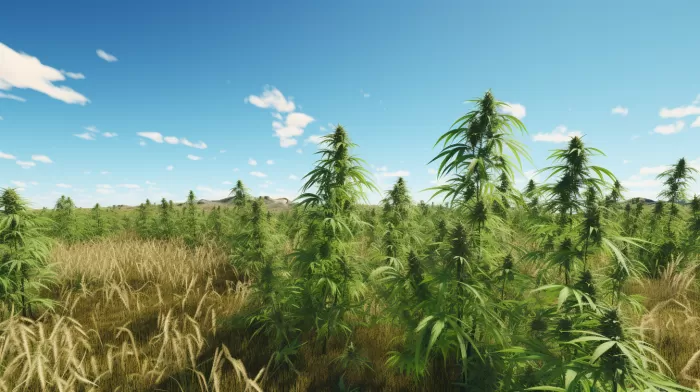Hemp is an incredibly versatile plant, but it has suffered from its close association with marijuana, and its production has been hampered by meddling bureaucrats. Both hemp and marijuana are derived from the same plant, cannabis sativa, which is illegal in the U.S. under Federal law, but while marijuana contains significant amounts of the mind-altering chemical THC, hemp won’t get you high. Instead, it contains cannabinoids that help alleviate the symptoms of oxidative diseases, especially those that impact the brain, when ingested.
Hemp has been used industrially for thousands of years: China used it for clothing, shoes and paper; Medieval Germany and Italy used it in food; for ages, it was used to make ropes and sails for ships. In the 1700s, it was illegal not to grow hemp in the United States – it was used in 80% of all fabrics and textiles, and in Virginia, you could be arrested for refusing to grow it.
In the early 1900s, a machine was invented that made harvesting hemp seeds and fibers more efficient; it was estimated that hemp would be used in all paper production by the 1940s. Popular Mechanics even predicted it would be the first-ever billion-dollar cash crop. However, the Marijuana Tax Act of 1937, which applied to hemp as well as marijuana, changed everything. The tax was introduced to lower usage of marijuana by placing a burdensome sales tax upon it and effectively criminalized the plant.
However, as is often the case, the real reason for the tax on hemp can be traced back to an entangled web of interests and back-door deals. The end result is that Americans don’t have ready access to hemp products because they are considered illegal.
Hemp can’t replace all plastics, but it can substitute some. And processing it doesn’t require or emit any toxic chemicals. Hemp is also a renewable resource that can be grown easily in various climates and conditions. It doesn’t require pesticides, herbicides, or genetic engineering. These qualities make it an exceptionally versatile natural product that can be produced abundantly, affordably, and responsibly.
Recently, some states have permitted hemp to be grown for research purposes only. While states are ready to harness the potential, the federal government is not. However, hemp clothing, home goods, consumer products, and basic materials would provide a more environmentally friendly alternative to plastics.
In addition to environmental benefits, hemp seed oil offers several health benefits. The antioxidants found in the oil help protect the brain and alleviate symptoms of many diseases associated with oxidation. It also contains a heart-healthy balance of omega-3 and omega-6 fatty acids that benefit bone health and metabolism. What’s more, hemp seed oil helps regulate digestion and has amino acids that improve mental function and cell maintenance.
With all these numerous benefits and uses, it’s time for hemp to take its place in the American economy.



